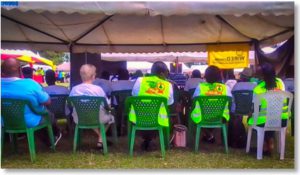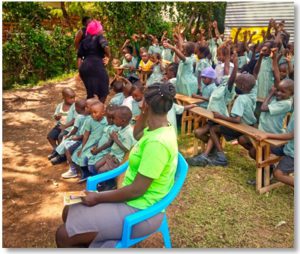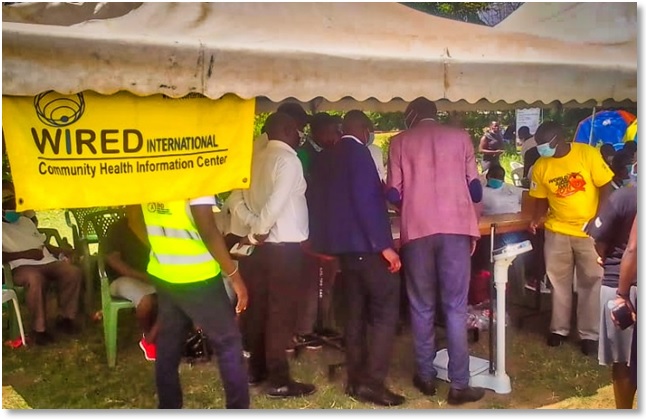Update from WiRED’s Community Health Workers in Kenya
Teaching Prevention Measures to Local Populations
By Allison Kozicharow; Edited by Elizabeth Fine
 WiRED International reports that during the month of January 2022, 12 community health workers (CHWs) in Kisumu, Kenya, reached a total of 5,881 people with health services. COVID-19 was the primary concern, followed by HIV/AIDS, handwashing, nutrition and malaria. Working 24 hours per week, each of the 12 CHWs met with at least 57 patients a week, and the largest number seen in a week by a single CHW was 290, most of them in health training classes.
WiRED International reports that during the month of January 2022, 12 community health workers (CHWs) in Kisumu, Kenya, reached a total of 5,881 people with health services. COVID-19 was the primary concern, followed by HIV/AIDS, handwashing, nutrition and malaria. Working 24 hours per week, each of the 12 CHWs met with at least 57 patients a week, and the largest number seen in a week by a single CHW was 290, most of them in health training classes.
WiRED International trains CHWs to emphasize prevention. We offer training modules on more than 450 health and medical topics for use by CHWs and for free download to a tablet or phone by anyone anywhere on the planet. In addition to using the modules to familiarize themselves with details of a disease or health disorder, the CHWs use the modules to teach others in their community about health conditions.
This month’s report from Kenya illustrates that despite the burden of the COVID-19 pandemic and endemic illnesses such as HIV/AIDS and malaria, CHWs are also sought out to educate their patients on healthy practices such as handwashing and good nutrition — the foundations of prevention for so many illnesses.
 In Kenya 39% of premature deaths occur from noncommunicable diseases (NCDs). The Ministry of Health has developed a strategic plan to tackle the epidemic of NCDs, which include cardiovascular and chronic respiratory illnesses, diabetes, cancer, mental health conditions and injuries. WiRED CHWs are teaching hundreds of area residents each week that physical inactivity, harmful use of alcohol, unhealthy diets, tobacco use and air pollution can lead to NCDs.
In Kenya 39% of premature deaths occur from noncommunicable diseases (NCDs). The Ministry of Health has developed a strategic plan to tackle the epidemic of NCDs, which include cardiovascular and chronic respiratory illnesses, diabetes, cancer, mental health conditions and injuries. WiRED CHWs are teaching hundreds of area residents each week that physical inactivity, harmful use of alcohol, unhealthy diets, tobacco use and air pollution can lead to NCDs.
This month CHW Mildred Digolo reported that she saw 529 patients around topics such as drug abuse, nutrition, handwashing and first aid. She said, “Before I became a CHW, health information was not taken seriously in our community. After the training, we CHWs started offering health information to people and doing referrals to health clinics. The community was impressed and requested we keep on giving them facts and advice.”
CHW Bunnyce Atieno said, “I am glad the communities have taken our teaching positively and are sticking to awareness about prevention measures.”


